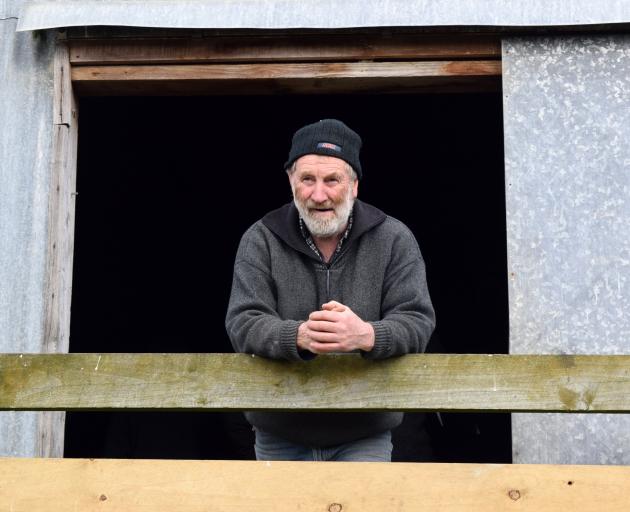Science
New Zealand Study Tracks Facial Eczema Impact on Sheep Farms

Beef + Lamb New Zealand has launched a study analyzing the effects of facial eczema on sheep farms across the country. This initiative, described by principal scientist Cara Brosnahan, aims to provide a clearer understanding of the impact of this disease, which costs the industry over $330 million annually. The research recently entered its third and final season, focusing on the detection of toxic fungal spores in fresh sheep manure.
During the second season, low levels of facial eczema spores were found on four sheep farms in Otago, while one Southland farm reported spores in the first season. All grazing livestock, excluding horses, are at risk of contracting the disease by ingesting sufficient amounts of these spores, typically found in pasture grass such as ryegrass. Farmers whose manure samples tested positive for spores were notified and encouraged to continue sampling to monitor spore levels.
The presence of spores can vary depending on environmental conditions. While livestock may not exhibit clinical signs if they consume a low quantity of spores, Dr. Brosnahan noted that hidden signs include decreased productivity and increased pregnancy scanning failures. Clinical signs have been identified across a wide area from Northland to the West Coast, with over half of the manure samples from the northern South Island showing symptoms of the disease.
Researchers are investigating how factors such as farm elevation, pasture height, and neighboring spore counts might influence the risk of facial eczema. The final season of the study is critical, according to Dr. Brosnahan, who stated, “We need more farmers to take part, especially if they’ve never had facial eczema detected on their farm before—those results help build our understanding of this devastating disease.”
Participation in the study is straightforward and free. Farmers collect sheep manure samples biweekly from October to May, with Beef + Lamb providing collection kits and covering postage costs. Participants receive results that enhance their understanding of facial eczema risk, along with a $40 subsidy for tested faecal egg counts. Additionally, 25 farms will be selected for detailed monthly testing.
The health risks associated with facial eczema are significant. When livestock consume a high number of spores, it can lead to liver damage, reduced fertility, weight loss, and even death in severe cases. “There’s no cure, so you’ve really got to be on top of the management before that happens,” Dr. Brosnahan emphasized.
Sheep farmer Graham Evans, who manages Barr Falls Farm in Owaka, has been actively participating in the study. He has collected and sent manure samples since the study’s inception and reported no spores found on his property. Evans believes that the disease’s spread to the South is inevitable and urged other farmers to participate, stating, “We don’t know what we don’t know, do we?”
Evans is committed to aiding future generations of farmers and hopes to encourage more participation from southern sheep farmers. He noted that farming conditions vary significantly across regions, from the Catlins to Central Otago and Eastern Southland to Western Southland. This diversity makes the collection of data crucial for understanding and mitigating the risks associated with facial eczema.
As the study progresses, the insights gathered will be invaluable in developing strategies to manage and minimize the impact of facial eczema in sheep farming across New Zealand.
-

 World4 months ago
World4 months agoTest Your Knowledge: Take the Herald’s Afternoon Quiz Today
-

 Sports4 months ago
Sports4 months agoPM Faces Backlash from Fans During Netball Trophy Ceremony
-

 Lifestyle4 months ago
Lifestyle4 months agoDunedin Designers Win Top Award at Hokonui Fashion Event
-

 Entertainment4 months ago
Entertainment4 months agoExperience the Excitement of ‘Chief of War’ in Oʻahu
-

 Sports4 months ago
Sports4 months agoLiam Lawson Launches New Era for Racing Bulls with Strong Start
-

 World5 months ago
World5 months agoCoalition Forms to Preserve Māori Wards in Hawke’s Bay
-

 Health4 months ago
Health4 months agoWalking Faster Offers Major Health Benefits for Older Adults
-

 Lifestyle4 months ago
Lifestyle4 months agoDisney Fan Reveals Dress Code Tips for Park Visitors
-

 Politics4 months ago
Politics4 months agoScots Rally with Humor and Music to Protest Trump’s Visit
-

 Top Stories5 months ago
Top Stories5 months agoUK and India Finalize Trade Deal to Boost Economic Ties
-

 Health2 months ago
Health2 months agoRadio Host Jay-Jay Feeney’s Partner Secures Visa to Stay in NZ
-

 World5 months ago
World5 months agoHuntly Begins Water Pipe Flushing to Resolve Brown Water Issue









